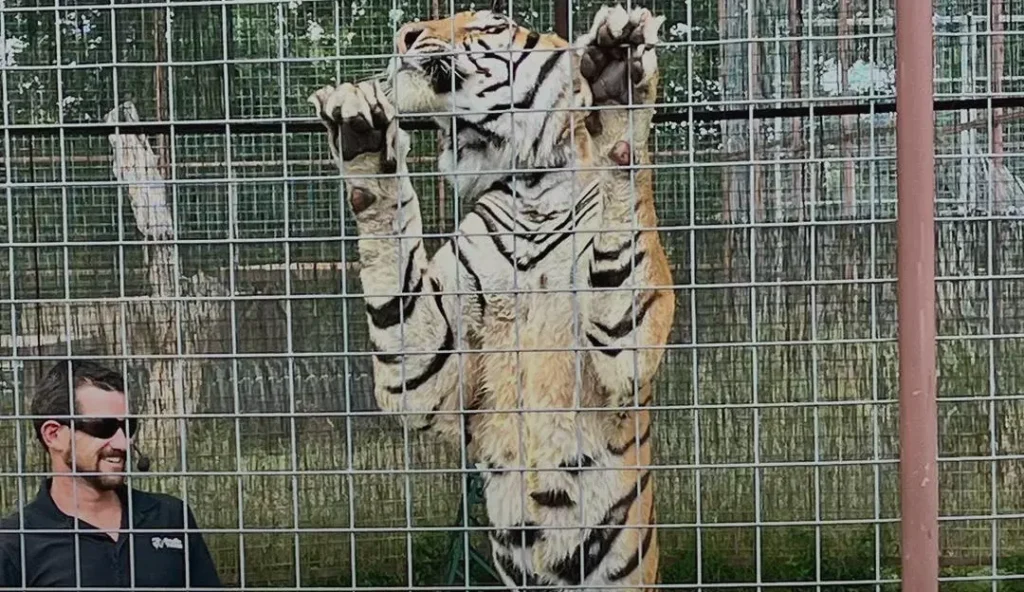Tigers are not pets or performers, and the probabilities are not in your favor if you have long-running interactions with tigers
WASHINGTON, D.C. — Animal Wellness Action and the Center for a Humane Economy today expressed condolences to the family of Ryan Easley, who died while working at his Growler Pines Tiger Preserve in Choctaw County, Okla., on Saturday. His related business, ShowMe Tigers, was a traveling show featuring tigers trained to perform tricks, including doing shows for Shrine Circuses.
Wayne Pacelle, president of the animal welfare organizations, issued the following statement.
“Mr. Easley was in a business built for failure and adversity. The people who made it their livelihood to exhibit tigers in performances have been charged with violating federal animal welfare laws, bankrupted by the costs of maintaining tigers in captivity, or injured or killed in handling these animals. This is a business where there are no good outcomes for the people or the animals involved.”

In recent years, other individuals involved in establishing and running big-cat menageries made infamous by Tiger King have unraveled. Jeff Lowe’s Greater Wynnewood Exotic Animal Park, once the fiefdom of Joseph Maldonado (aka “Joe Exotic”), was shut down in 2020 after his USDA license was suspended, and a federal court has since banned him and his wife from ever exhibiting animals again. Joe Exotic himself is serving a 21-year federal prison sentence on wildlife and murder-for-hire convictions targeting the famed big-cat advocate Carole Baskin. Bhagavan “Doc” Antle, long a flashy tiger exhibitor in Myrtle Beach, pleaded guilty in 2023 to money laundering and other offenses and was sentenced to a year in federal prison, though his roadside zoo still operates. And Timothy “Tim” Stark of Indiana, who ran the notorious Wildlife in Need roadside zoo, lost his license after a string of animal welfare violations, was arrested, and is now permanently banned from owning or exhibiting exotic animals. Collectively their many troubles underscore the cruelty and hazards built into the big-cat exhibition industry.
“When it’s your business to interact daily with the most powerful big cats in the world, the probabilities are just not in your favor over time,” added Pacelle. “Tigers are powerful, unhappy with the poor treatment they endure, and frustrated with living environments ill-suited to their natures. If they can kill a water buffalo, they can make an instinctive strike against a person and produce a mortality event in a flash.”
Working with Carole Baskin and Howard Baskin of Big Cat Rescue, Animal Wellness Action and the Center for a Humane Economy worked to help pass the Big Cat Public Safety Act in Congress in 2022 to halt breeding of cubs and kittens for the pet trade and to stop roadside zoos from using the animals in performances to lure tourists.

